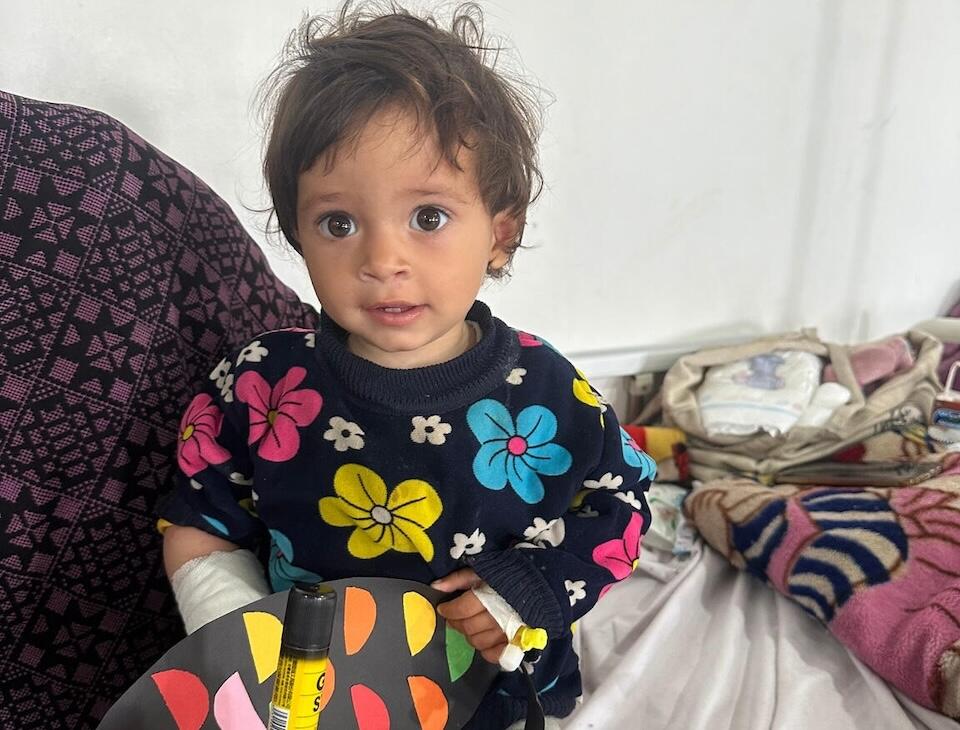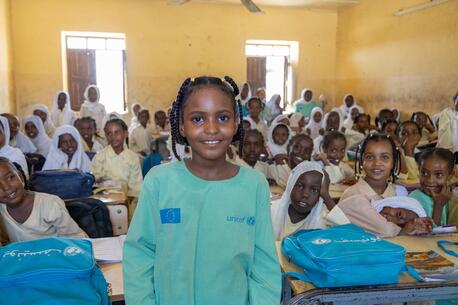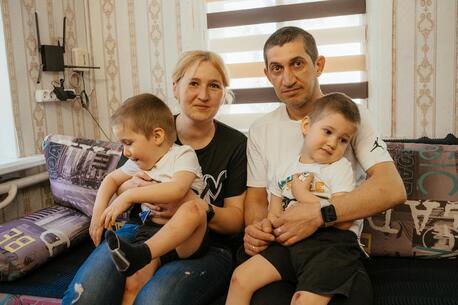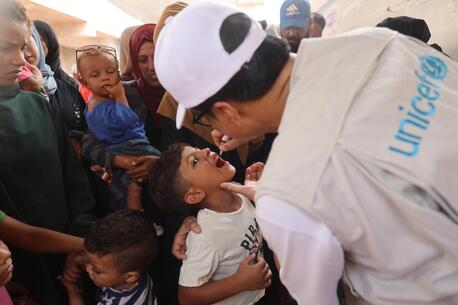
Helping Gaza's Children Cope With Trauma
Displaced by violence and under constant threat of bombardment, without adequate access to food and safe water, children in the Gaza Strip are suffering emotionally as well as physically. UNICEF is working with partners to provide urgently needed mental health and psychosocial support.
UNICEF-supported programs give children in Gaza a sense of safety and a chance to just be kids again
After more than six months of intense bombing in the Gaza Strip, more than 13,800 children have reportedly been killed, thousands have been injured and thousands more are on the brink of famine.
The total number of wounded children is hard to determine as only a small percentage of reports are disaggregated by age, but the most recent data from the Palestinian Ministry of Health documents more than 12,000 children — almost 70 children every day — injured in Gaza since the war began. That number is almost certainly an underestimate.
"The scars of this war are not just physical ones," said UNICEF spokesperson Tess Ingram. "We're seeing an enormous mental health toll on children in Gaza. UNICEF estimates that 100 percent of the children here need mental health and psychosocial support."
The scars of this war are not just physical ones. We're seeing an enormous mental health toll on children in Gaza. — Tess Ingram, UNICEF spokesperson
Together with partners, UNICEF is reaching children with Mental Health and Psychosocial Support (MHPSS) programs. During a recent visit to the Indonesian Field Hospital in Rafah, southern Gaza, Ingram looked on as staff from UNICEF partner organization Tamer led injured children in interactive storytelling, theater games and arts and crafts activities.
The programs give Palestinian children some much-needed joy amid a terrifying ordeal. "Activities like this are so important to give children a chance to feel safe and to be a child again, even if for a short while," said Ingram.
Nine-year-old Raghad's eyes lit up during the storytelling. For a moment, she seemed to forget about her swollen foot, wrapped in bandages. "I want to be a doctor," she said. "Because I want to learn medicine."
In the crowded hospital ward, the injured children looked like children anywhere, playing games and sharing glue sticks as they worked on decorating their colorful construction-paper fish. "It's so nice to be here and see children who've been injured in this war have a chance to smile and laugh and relax," said Ingram.
It's so nice to be here and see children who've been injured in this war have a chance to smile and laugh and relax.
"We played, talked to each other and they read us stories," said Raghad. "I loved talking to others because they encouraged me and talked to me."
Raghad was in the third grade when the war began. When she talks about those days, it sounds as if she is describing something that happened a very long time ago. "We were reading and learning," she said, remembering her friends Mariam, Ruba and Ola. "We played games like running after each other and hide-and-seek."

As of April 3, UNICEF has provided psychosocial support (PSS) services to 140,962 children and caregivers, of whom 105,750 are children (including 56,625 girls), in Gaza, North Gaza, Rafah, Khan Younis and Deir Al-Balah.
“Children do not start wars, and they cannot end them, but they always pay the highest price," UNICEF Executive Director Catherine Russell said in a statement on April 16, following a two-day trip to the Middle East. "For the sake of every child, I urge the parties to the conflict to release all Israeli hostages, implement an immediate ceasefire in the Gaza Strip and facilitate unfettered humanitarian access, and refrain from any further violence against children."
Wherever and whenever children are in need, UNICEF is there to help. Your contribution makes a real difference. Please donate.
HOW TO HELP
There are many ways to make a difference
War, famine, poverty, natural disasters — threats to the world's children keep coming. But UNICEF won't stop working to keep children healthy and safe.
UNICEF works in over 190 countries and territories — more places than any other children's organization. UNICEF has the world's largest humanitarian warehouse and, when disaster strikes, can get supplies almost anywhere within 72 hours. Constantly innovating, always advocating for a better world for children, UNICEF works to ensure that every child can grow up healthy, educated, protected and respected.
Would you like to help give all children the opportunity to reach their full potential? There are many ways to get involved.





